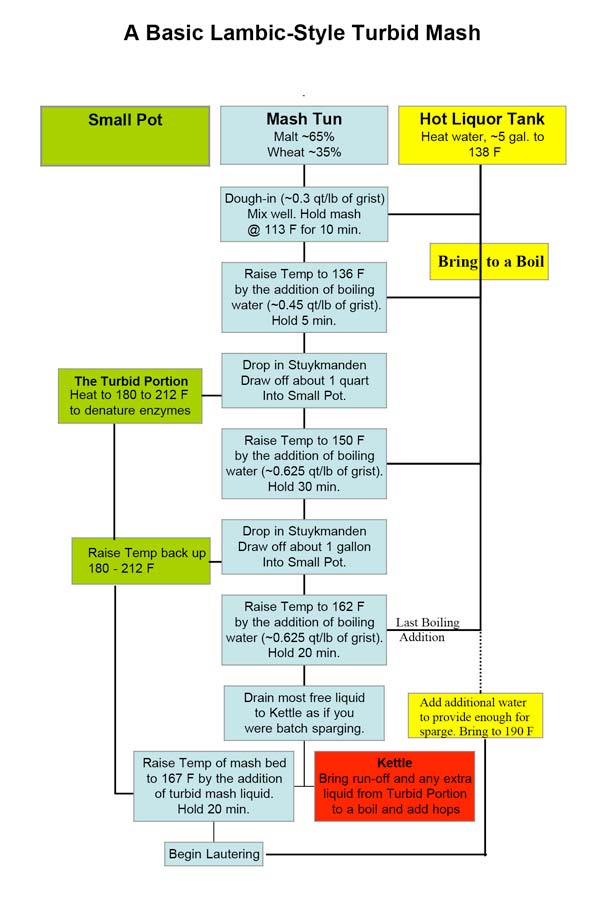Topic: All Grain Brewing
Sour Mashing Techniques
Do you like beers with a little tart twinge to them? Or would you like to acidify your mash without adding calcium? If so, you may want to think about sour mashing — the other sour brewing technique.
Turbid Mashing
As Belgian-inspired beers grow in popularity and continue to nudge their way into North American beer culture, the desire to brew better, more adventurous, creations pushes brewers forward to find the next
Increasing Your Extract Efficiency
Are you getting all you can get out of your malt? With malt prices on the rise, you may be wondering about this. Discover ways to get a better yield without sacrificing wort quality or expanding a brewday.
Lautering Efficency
To get all the goodies from your grains, you need an efficient lautering system – find out how homebrew solutions stack up.
The Science of Step Mashing
A single infusion mash is best for fully-modified malts — but when it comes to undermodified malts, you need to step it up.
Cereal Mashing
How to utilize starchy adjuncts with a cereal mash – and the alternate forms of these adjuncts that can be single infusion mashed.
Reiterated Mashing: Multiple Mashes for Massive Brews
Want to brew a bigger beer, entirely from grains, without investing in a larger mash tun or kettle? Then try reiterated mashing. It’s mashing, then using the wort to mash again…and perhaps again.
Extract vs all-grain brewing?
This is a pretty heavy question because it hits to the foundation of homebrewing. The way I see it, homebrewing is about brewing your own beer. Mashing is certainly part of what
15 Summertime Recipes
Want a cool, crisp, refreshing beer to drink when grilling or sitting around the pool this summer? Try one from our collection of 15 recipes, submitted by homebrew shops from across the nation.
Summer Recipes
Looking for a few summer brewing ideas? Check out some bonus summer recipes from homebrew shops across the US.
Home Malting
Sure, the name of the magazine is Brew Your Own. But, just this once we’re taking a step back and learning how to malt our own. If you want to take your brewing from grain to grass, here’s how.
Extract for All-Grainers
Even for all-grain brewers, malt extract has its uses. When making a strong beer or a large volume of beer, malt extract can substitute for mash tun volume (or boil time). Learn the equations to make expedient extract additions.








